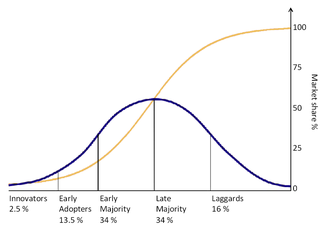Let’s say your company has a great software application. It could be a revenue-generating product or an internal workgroup solution. Either way, the business is asking for an enhancement — not just any enhancement. They want to implement a completely new feature set. You ask lots of questions to determine basic information like: Target users […]
Month: September 2011
Does Your Boss Have What It Takes to Be Agile?
Agile development may be a hot trend but it’s hard to get right. Are you afraid to take risks? Are you afraid of losing your job if you mess up? Does your boss operate on the “failure is not an option” principle? Do you feel the need to be right all the time? Is “playing […]
Don’t Let an Emergency Throw Your Project Into Chaos
A minor disaster in my home town (water contamination) makes me think about the impact of disaster situations on software project teams. It’s frustrating to have a project derailed by events beyond your control. Disasters happen to the best projects. It’s how the project team prepares and responds that matters. Unexpected emergencies sabotage teams and […]
How to Be Agile in a High-Turnover Environment
The best agile software development teams are those that have stayed together through multiple projects. Those teams have time to grow, evolve and adapt. It takes time. Greatness doesn’t just happen; it takes practice. Unfortunately, software development teams tend to experience significant turnover among their members. There are many reasons for it, but in the […]
The Best Agile Development Teams Are Competitive
Competition — it’s what makes everything better. The most successful athletes and sports teams are highly competitive. The most successful people are driven to compete. The most successful companies challenge themselves to be better than the competition. Does your software development team compete with anyone? It should. Competition will up the energy level and drive […]
How Accurate Are Your Project Estimates?
There is no substitute for experience. Here are the approaches most commonly used to estimate the time and cost of software projects. Story Points – An approach favored by agile software teams. The simplest unit of work is one point. As units of work are evaluated, they are compared to the simplest and to each […]
8 Lessons in Being Agile from the Open-Source Community
The open-source community can teach us a few things about being agile whether you follow Scrum, Kanban or any other agile approach. 1. Open-source teams tend to be decentralized with a minimal hierarchy. This enables fast decision-making. Multiple levels of approval aren’t needed to get things done. This level of autonomy can be difficult to […]
Best Practices Are Guidelines Not Absolutes
We hear a lot about “best practices”. They apply to every endeavor from home repairs to business strategies. The phrase is also often used when examining agile software development approaches such as Kanban, Lean, Scrum and XP. What are best practices? They’re really just methods, processes, rules or techniques that have been successful in certain […]
Managing Expectations Leads to Successful Outcomes
I’ve written about context (Without Context, You Can’t Make an Informed Decision) and how important it is when making a point. For example, if your work involves IT consulting to the U.S. Government, your context is completely different from someone working in a software start-up targeting consumers. The ground rules are totally different. In a […]
Adding Managers to a Late Project Only Makes It Later
I’ll bet it’s happened to you. You’re working on a software development project that runs into trouble. The project could be on a long, slow decline or some unexpected event may have blindsided the team. Either way, the project is late and your team is in trouble. Now it gets worse. The news spreads up […]
Applying Agile Development to the Real World
You may have heard about Everett Rogers’ book, “Diffusion of Innovations”, Geoffrey A. Moore’s book, “Crossing the Chasm”, or Eric Ries’ concept of the Minimum Viable Product (MVP). They each present intriguing ideas that fit nicely into developing software using an agile approach. Take a look at the graphs shown here. They come from WikiPedia […]
How Not to Adopt Enterprise Agile Development
Let’s say that your enterprise decides to give agile software development a try. They select Scrum as the preferred agile approach (though it could also be Kanban, Lean or XP). They decide to try a pilot project rather than changing the entire company at once. A pilot project is selected; not just any project but […]
Even Simple Software Applications Can Be Complicated
If I asked you to write a simple software application to calculate loan payments and remaining balances over time, how would you approach it? Here are a few possibilities: Ask questions to clarify the requirements and document the answers before continuing. Write a formal requirements document and obtain sign off before continuing. Produce a user […]
10 Reasons Why Projects Cascade Into Chaos
Projects fail for many reasons. Sometimes it seems that the team can do everything right, or at least to the best of their ability, and failure occurs anyway. There is simply no way to guarantee success but there are some key indicators that can alert you to impending failure. 1. Lack of Sponsorship Executive sponsorship […]

